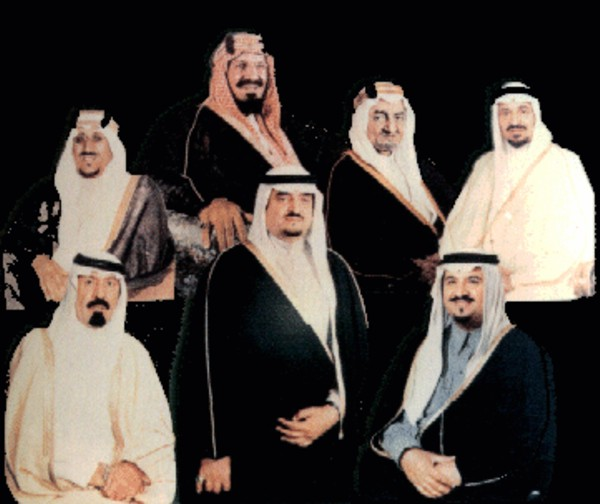
FROM THE DESERTS OF ARABIA TO THE PALACE OF RIYADH... THE ADVENTURE OF THE SAUDI ROYAL FAMILY
The Saudi emirs of the Salafi sect, while under Ottoman rule as the district governors of Riyadh, took advantage of the power vacuum that emerged after 1918 and, with British support, gained control over the Hejaz and Arabia. Here is the story of this eccentric family...
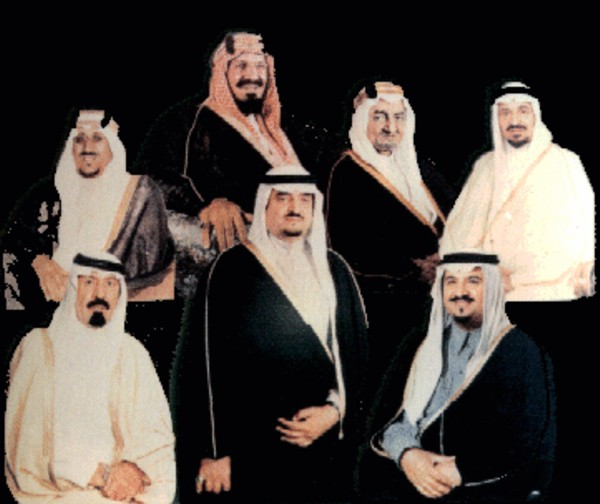
Although the Ottoman Empire was a Sharia-based state, it did not interfere with the beliefs and practices of its people, even if they contradicted the state's official doctrine. In other words, it neither monitored people's private lives nor their mindset unless such practices disrupted societal order; in such cases, it would act decisively. Sharia principles necessitate this. Whether it was Sheikh Bedreddin, Oğlan Sheikh, İsmail Maşuki, or sects such as the Alevis or Wahhabis, if their actions turned into movements, they were met with active intervention.
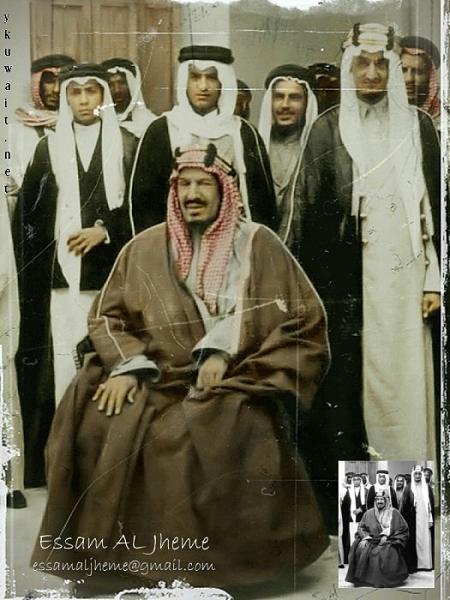
From Governorship to Kingdom
Among these movements, Wahhabism is significant for its lasting influence, continuing to this day through organizations like the Taliban, al-Qaeda, and ISIS. The sect emerged in the late 18th century in the Najd region in eastern Arabia and was founded by Muhammad ibn Abd al-Wahhab. Its principles were initially based on the ideas of Ibn Taymiyyah (d. 1328), a scholar from Harran who belonged to the Hanbali school. Ibn Taymiyyah was condemned in Damascus and Cairo for his controversial views resembling those of the anthropomorphic sect Mujassimah and for his negative remarks about the Sahaba (companions of the Prophet Muhammad).
Famed for his scholarly achievements and piety, Ibn Taymiyyah opposed concepts such as Sufism, miraculous deeds, intercession, and visiting graves. He also presented extreme views in certain legal matters that diverged from the consensus of earlier scholars. During his lifetime, he and his disciples faced severe criticism and were accused of bid'ah (innovation in religion) and even ilhad (disbelief).
.jpg)
Abd al-Wahhab, initially a Sunni and the judge of Uyayna, later became a fervent adherent of the views of Ibn Taymiyyah and his followers. Claiming to return Islam to its original purity, he opposed grave visitation, tomb construction, the recitation of Mawlid (Poems describing the birth, life and virtues of the Prophet Muhammad), invoking saints in prayers, Sufism, mosque pulpits and minarets, and the use of prayer beads after prayers, considering these practices as bid'ah or even kufr (blasphemy).
His followers rejected the Maturidi and especially the Ash'ari school of theological thought of the Ahl as-Sunnah and misleadingly adopted the name Salafiyya, describing those who did not follow this belief as Sufis. The Salaf as-Saliheen means the first Muslims. However, the beliefs and practices of the Salafis are not similar to these.
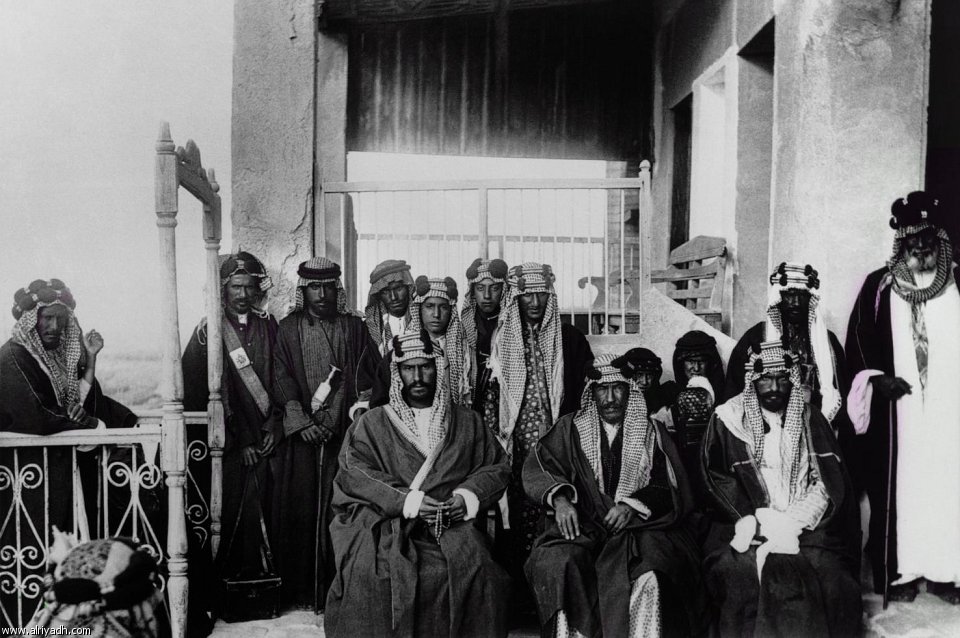
Ibn Abd al-Wahhab, closely linked with British intelligence officers who sought control over trade in the Persian Gulf along the Indian route, died in 1791. Despite the opposition of many scholars, including his brother Sulayman, his ideas spread, particularly among the Bedouins (nomadic Arabs).
The ancestor of the current Saudi royal family, Emir Muhammad ibn Saud of Diriyah, adopted this sect in 1744 after marrying Ibn Abd al-Wahhab's daughter. He hailed from the Banu Hanifa tribe, which had once believed in the prophethood of Musaylima al-Kadhdhab. He died in 1765.
His successor, Abdulaziz, attacked the Hejaz in 1811. Medina fell, sacred tombs were destroyed, and those who resisted were killed. Upon Sultan Mahmud II's orders, the Ottoman governor of Egypt, Muhammad Ali Pasha, marched into the Hejaz, using wealth to win over Bedouins and villagers, and achieved victory, reclaiming Medina and Mecca.
Abdulaziz's grandson Saud launched another attack on the Hejaz in 1812 with Bedouin cavalry known as the Ikhwan (brothers). Egyptian forces defeated them again, and their leaders were sent to Istanbul and executed. Saud’s son Abdullah was also defeated in 1818. Diriyah fell and was razed. Today, contrary to the Saudi stance on historical preservation, it remains an open-air museum. Abdullah, along with his sons, was sent to Istanbul and executed in Sultanahmet Square.
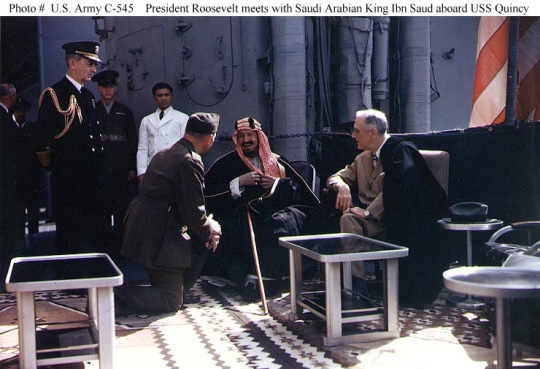
The subdued Saudi emirs accepted Ottoman sovereignty and governed Riyadh as district governors. Taking advantage of the power vacuum after 1918, they gained control over the Hejaz and Arabia with British support.
By 1924, Mecca and Medina had fallen, and Sharif Hussein Pasha was expelled from the Hejaz. The Kingdom of Saudi Arabia was established, with Abdulaziz, the grandson of the previously executed Abdulaziz, proclaimed king. Thus, he symbolically avenged his granduncle’s execution in Istanbul a century earlier.
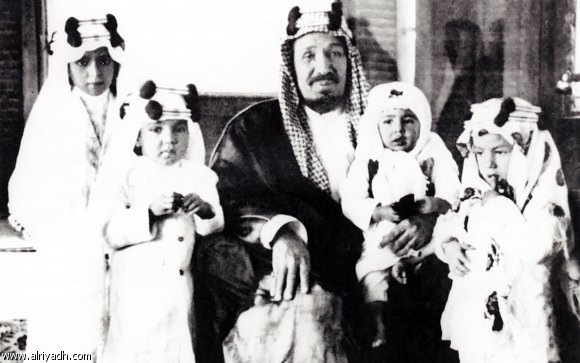
Also known as Ibn Saud, King Abdulaziz promised that the Hejaz would be autonomous, governed by a committee elected by Muslims, and governed under a constitution. However, this promise was never fulfilled. At the time, there were few independent Muslim states, and this fait accompli was ignored by Ankara, with only Tehran objecting.
With the discovery of oil and American support, the king’s power grew immensely. Today, Salafism is the official doctrine in Saudi Arabia. Education, sermons, and legal rulings adhere to this sect. The more moderate among them identify as Hanbali. The other three Sunni schools are not officially recognized.
In Saudi Arabia, the government is under the control of the Saud family, while religious affairs are managed by the descendants of Muhammad ibn Abd al-Wahhab, the founder of the Wahhabi sect. In this society, highly esteemed individuals, feared and respected by everyone, are referred to as Al ash-Sheikh.
The first to break this tradition was King Faisal. He appointed a blind man named Abdulaziz Ibn Baz, who was not from this family, to the position of sheikh for the first time. Although Ibn Baz was a staunch Wahhabi, he did not belong to Al ash-Sheikh. With this move, the king intended to diminish the family's influence, which the family could not tolerate. In 1975, King Faisal was assassinated by his nephew. Faisal remains a pivotal figure in Wahhabi history.
Second, King Fahd resisted Al ash-Sheikh on various matters. He rejected proposals such as demolishing the Prophet's tomb and relocating it outside the mosque, destroying the minarets of Masjid al-Nabawi, and erasing the calligraphy on its walls. Finally, when Wahhabis sought to execute a Sunni scholar named Sayyid Muhammad al-Alawi al-Maliki for writing a treatise praising the recitation of the Mawlid, which is considered shirk in Wahhabism, Fahd prevented it.
King Abdullah, who ascended the throne in 2005, avoided compromising the state’s official ideology of Wahhabism while also attempting to present a more tolerant image. His act of raising his hands in prayer before the Prophet’s tomb, contrary to Wahhabi beliefs, caused astonishment and sparked hatred among staunch Wahhabis. This marked the third significant shift. After his death in 2015, the throne passed to his brother Salman.
.jpg)
A Good Family Man
Abdulaziz ibn Saud, who died in 1953, had 150 children, 70 of whom died young, from countless marriages. Six of his sons successively became kings, including the current king’s father. The family now numbers over a thousand members, holding significant authority in various state positions.
Abdulaziz’s son and the second king, Saud, was known for his indulgence, leading to his deposition a year later. He died in Athens in 1969 during exile.
Abdulaziz’s second son and the third king, Faisal, is the most renowned in the family. Fluent in three languages, he excelled as foreign minister, earning great fame, affection, and influence in the Islamic world through his masterful diplomacy. Although he attempted to revive the caliphate, he did not succeed. He sought genuine friendships with Muslim nations and visited Ankara in 1932 as the governor of Hijaz.
Until then, Salafism relied on brute force; Faisal worked for its intellectual expansion. He established the Muslim World League (Rabitat al-Alam al-Islami), funded by oil revenues and pilgrim contributions, which supported mosques, madrasas, and Islamic centers worldwide. It trained religious scholars on its payroll and translated Salafi doctrinal books into all major world languages for free distribution.
Faisal’s wife, Iffat Hanım, was the daughter of an Ottoman officer from Adapazarı and a palace concubine. Faisal, out of love for her, vowed not to take other wives. Despite his popularity, Faisal was assassinated by his nephew in 1975.
His 62-year-old brother Khalid succeeded him, known for his deep religious adherence. He did not hesitate to execute his granddaughter for adultery with an army officer. When Khalid died in 1982, his 60-year-old brother Fahd became king. With a refined aesthetic taste, he dismissed rigid Salafi demands to demolish the Green Dome (Qubbat al-Khadra) and erase minarets and wall inscriptions in mosques as bid’ah.
Fahd and Abdullah, both late kings, were brothers. I saw both of them up close during my stay in Medina. Fahd attended the completion ceremony of Masjid al-Nabawi’s renovation, moving around in a golf cart due to age and obesity. Hardcore Salafis today view the royal family as lax and compromising on sectarian matters. In fact, a group known as “Ikhwan” (not the Muslim Brotherhood) stormed the Kaaba in 1979, and their rebellion was suppressed with great difficulty.
In the country, two major tribes, the Sudairi and the Shammar, hold significant influence. The Sudairis dominate the military and political apparatus, while the Shammaris control the economic sphere. Salman was born to Hassa (d. 1969), a wife of King Abdulaziz from the Sudairi tribe. Along with the previous King Fahd, Hassa bore seven Saudi princes who are collectively referred to as the “Sudairi Seven,” drawing strength from their powerful tribal ties. The Shammaris, who rallied around King Abdullah’s son, argued that the throne should pass to the king’s son, but this did not happen.
As in the Ottoman Empire, in Saudi Arabia, the oldest male member of the royal family becomes the ruler. Consequently, recent kings have been quite old. However, as their final years are often marked by severe illness, the crown prince essentially governs the country for several years, gaining practical experience akin to an internship. Nevertheless, the king has the authority to choose the crown prince and can bypass the line of succession when necessary. For instance, after King Abdullah, the eldest brother, Prince Abdulrahman, was skipped in favor of Salman.
The new King Salman received private education at the palace and was appointed to significant positions at a young age due to his promise. He served as the governor of Riyadh for 48 years and later became the defense minister. Following the death of Prince Nayef, he became the crown prince and had been effectively running the country for several years in place of his ailing brother.
Salman approaches issues diplomatically and moderately, but like the previous king, he prioritizes economic reforms over political ones. He also owns a publishing company that advocates for the Arab League. In 2010, he suffered partial paralysis on his left side and has limited use of his left hand. Rumors of him having dementia have also circulated.
He has 13 children from three marriages. Salman’s son, Prince Sultan, gained fame in 1985 as the first Muslim, Arab, and member of royalty to travel to space aboard the Space Shuttle Discovery. Currently, he is the de facto leader of Saudi Arabia and likely the future king. He is working towards gradually dismantling the unpopular Wahhabi ideology in the West and rapidly Westernizing the country.
.jpg)
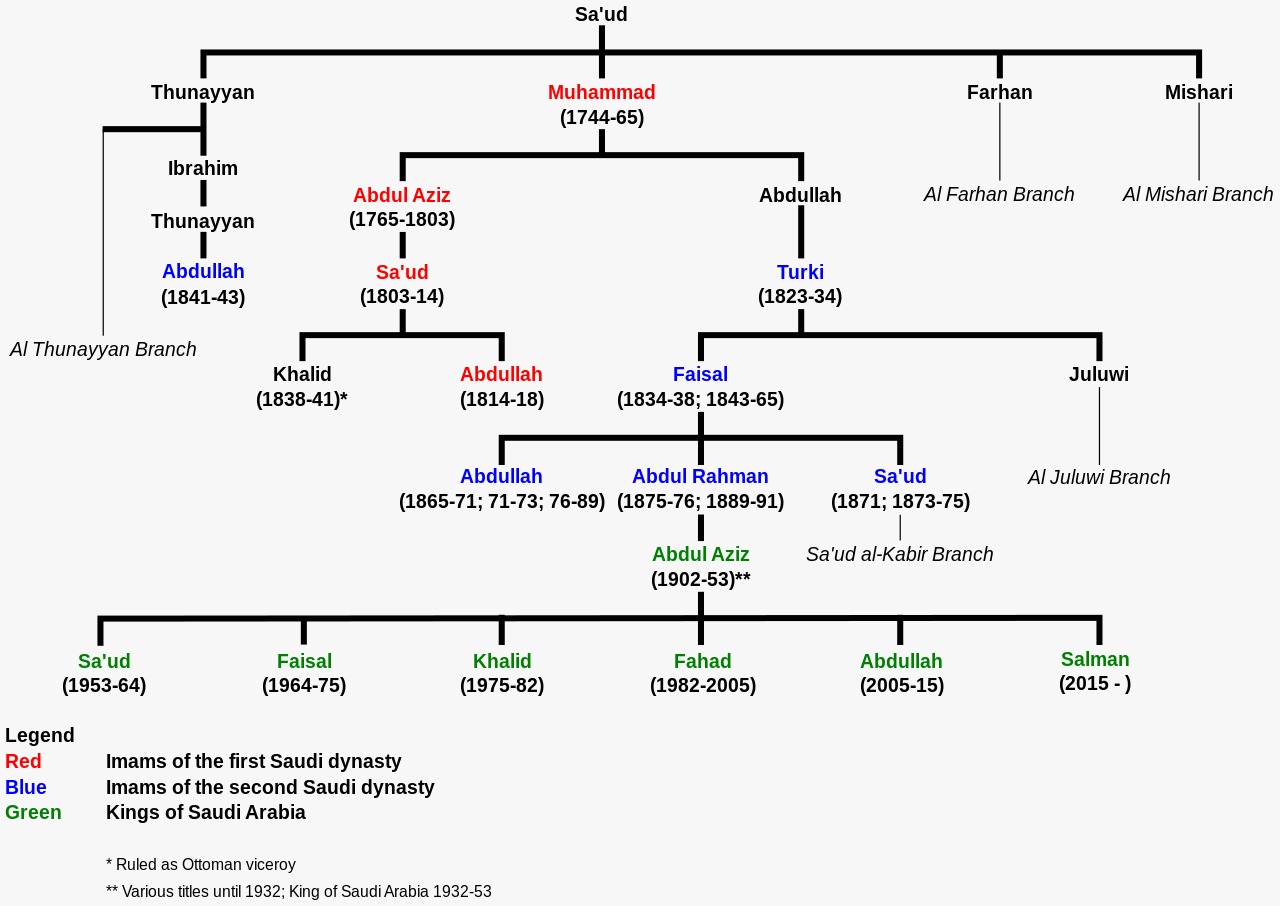
Önceki Yazılar
-
THE WATER OF IMMORTALITY IN THE “LAND OF DARKNESS”28.01.2026
-
THE WORLD LEARNED WHAT FORBEARANCE IS FROM SULTAN MEHMED II21.01.2026
-
THE RUSH FOR GOLD14.01.2026
-
TRACES OF ISLAM IN CONSTANTINOPOLIS7.01.2026
-
WHO CAN FORGIVE THE KILLER?31.12.2025
-
WHEN WAS PROPHET ISA (JESUS) BORN?24.12.2025
-
IF SULTAN MEHMED II HE HAD CONQUERED ROME…17.12.2025
-
VIENNA NEVER FORGOT THE TURKS10.12.2025
-
THE FIRST UNIVERSITY IN THE WORLD WAS FOUNDED BY MUSLIMS3.12.2025
-
WHO BETRAYED PROPHET ISA (JESUS)?26.11.2025